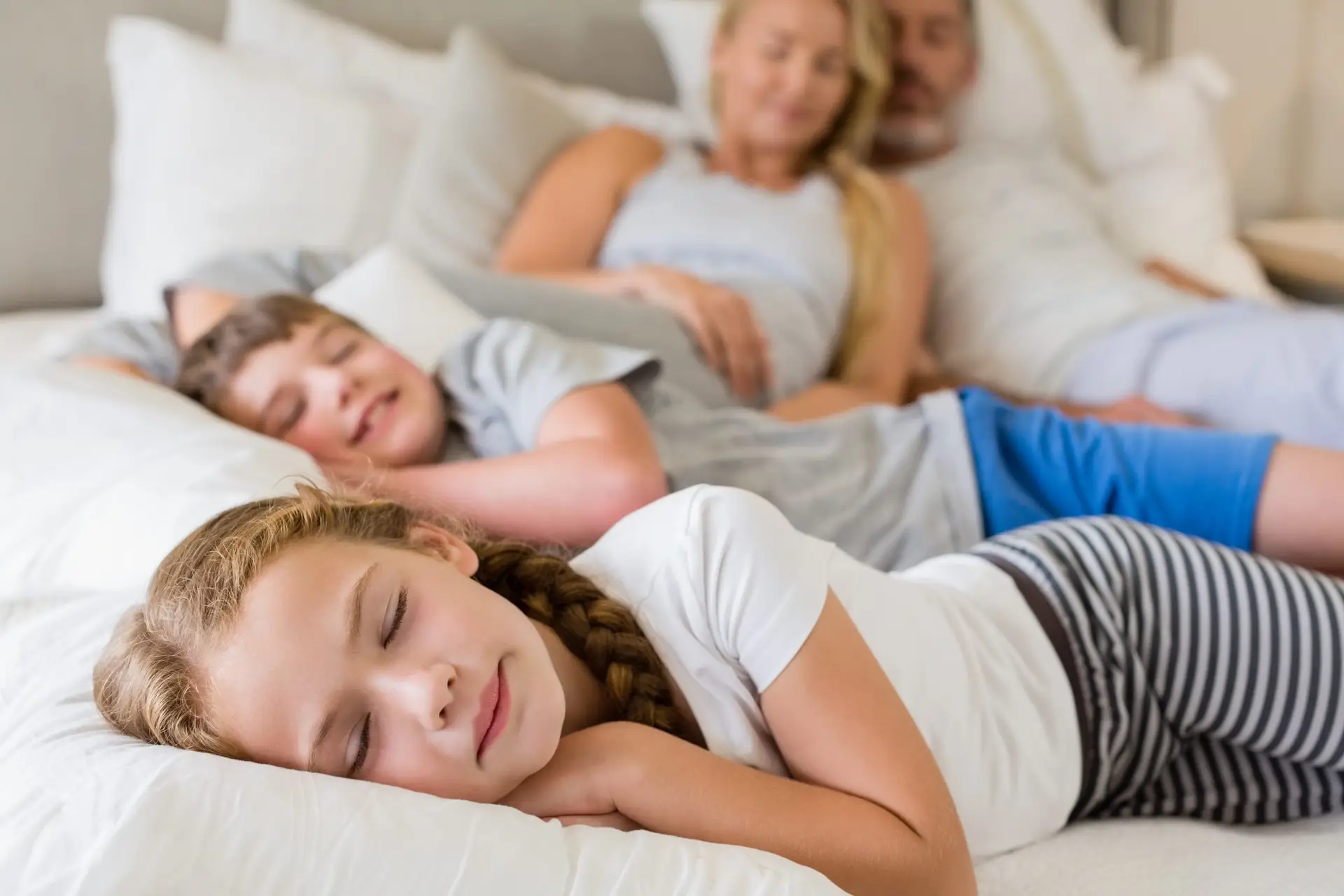We’ve all heard it time and time again, we need to get more sleep! Sleep is one of the most important factors in helping your kids to be healthy and happy—and they need a lot of it (use this calculator to figure out just how much). But with so much going on in their lives, it can be difficult for kids to settle down and get really restful sleep. On top of homework and busy schedules, parents should also be thinking about how technology affects sleep. It’s important to help your kids to develop a nighttime routine that helps them unplug from technology to get their mind and body ready for sleep.
A study featured in Global Pediatric Health found that “children ages 4 to 11 found that increased screen time was associated with increased sleep anxiety, increased night waking, and increased total sleep disturbance.” On top of that, researchers discovered that kids who watched TV late at night slept less than those who didn’t. Sleep deprivation and technology unfortunately go hand-in-hand, which can greatly impact your child’s mental health, focus, and immune system. Setting a technology curfew for yourself and your kids can lead to more restful sleep for everyone.
If turning off all TVs, phones, and tablets an hour before bedtime seems like a major change for your crew, just start with turning your phones off a little earlier. Troomi makes it easy to set a technology curfew for your kids’ phones. Simply log into the Parent Portal and set up the curfew for each day of the week. Troomi gives you the flexibility as a parent to change curfew times on weekends when your kids might be up a little later than on school nights.
You may find yourself thinking, but WHY are technology and sleep deprivation correlated? Well, screens emit blue light which can actually mess with our circadian rhythm, which is what helps our bodies know it’s time to go to sleep. When it gets dark outside, our bodies naturally produce melatonin which impacts our ability to fall asleep and how deeply we sleep. Not having enough melatonin impacts kids even more than it does adults and greatly impacts mood, memory, and focus.
Are you convinced that it’s time to start implementing a better nighttime routine for your family? Here’s a simple routine that you can follow about an hour before bed that can apply to all ages (and for a few more tips on developing a better sleep schedule click here):
- Technology Off: Turn off the TV and set phones to “Do Not Disturb.” With the Troomi Parent Portal, you can set screen limits that will automatically block the functionality of your child’s phone (except emergency contacts) at certain times of day. Just specify what time you want your child to have access to their phone, and leave the rest to Troomi!
- Take Care of Your Body: Brush your teeth, wash your face, and grab a small drink of water.
- Chill Out: Spend 15 minutes reading, journaling, or meditating right before you hop in bed to calm down your mind.
- Go to Bed: Turn the lights off and sleep tight! Try and aim for the same time every night to help your body to prepare for restful sleep.
Understanding how technology can impact you and your child’s sleep can make a huge difference in your health. Making small changes in your technology habits will lead you to start sleeping better, feeling better, and performing better every day.

